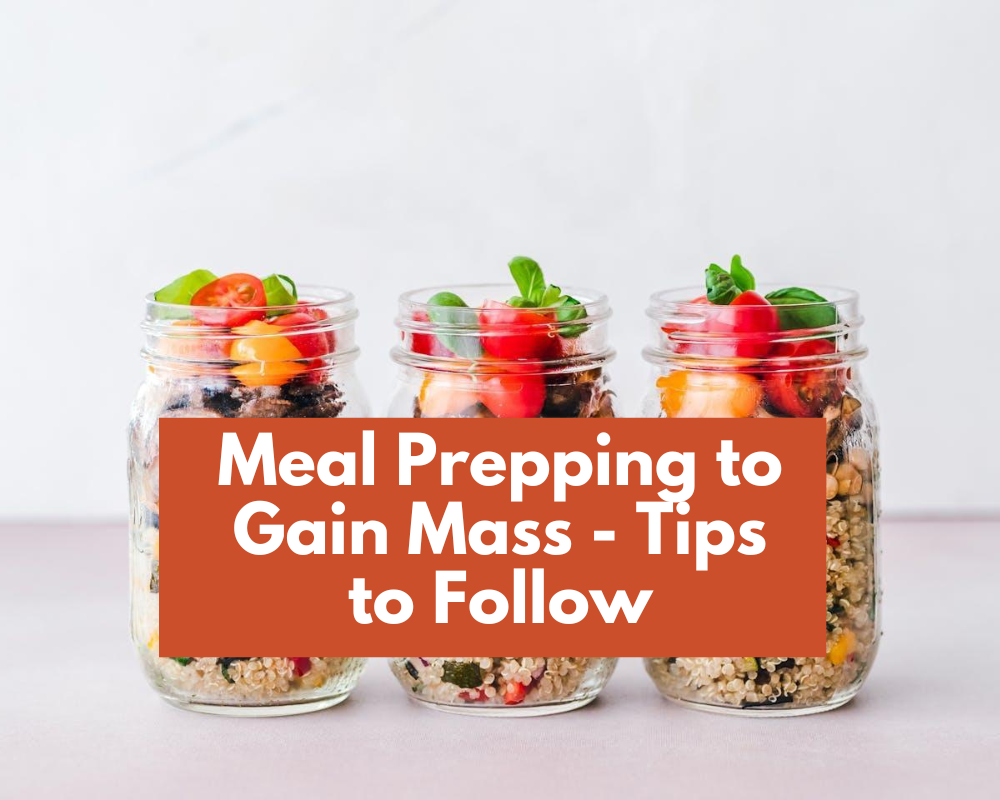Diet for building muscles requires an intelligent approach to nutrition, and meal prepping is an outstanding way to go for busy people. Meal planning and preparation in advance will enable you to consume the right goods in proper amount to help you achieve your muscle building objective.
Calorie and Macronutrient Requirements Explained
If you want to build muscle mass, you have to eat more calories than your body spends. These excess calories provide the energy for muscle growth. However, it’s not about eating more; the kind of nutrients you consume determines whether your calorie intake is healthful or not.
Protein is the muscle constructive material, for this reason, you need to have enough of it. Healthline states that an average protein intake should be equal to 0.8 g/lb of body weight. For instance, an individual weighing 180 pounds should focus on receiving 126 to 180 grams of protein on a daily basis.
Carbohydrates are also important in building muscles because they provide the energy required to work out intensely as well as in the recovery process. Aim for 2 to 3 grams of carbs for every pound of your body weight, depending on your activity level.
Healthy fats are necessary as well. They are the ones that enable hormone secretion that is actually needed for muscle development. Strive for 0.4 to 0.6 grams of healthy fats per pound of body weight.
How to Plan and Prepare Meals for Mass Gain
The first important step in meal prepping is creating a weekly meal plan. Figure out your calorie and macronutrient (carbohydrate, protein and fat) needs by using a calorie calculator and then plan your meals accordingly. Select nutrient-dense foods that are in line with your well-being goals, e.g. lean proteins, complex carbohydrates, and healthy fats.
When cooking meals in batches, consider cooking larger amounts of protein sources, e.g. chicken, turkey, or lean beef. Similarly, you can also cook grains like quinoa or brown rice in more significant amounts. Another time-saving tactic is to cook vegetables in bulk by steaming or roasting them.
Effective storage methods are important to maintain food safety and freshness. Use air-tight containers or resealable bags to store cooked meals and label them with the date and ingredients. Keep perishable items in the refrigerator and freeze any meals that you will not be able to consume within a few days.

Meal Prep Strategies for Busy Schedules
Even for people with the busiest schedule, cooking in advance could be a real game changer. Devote two to three hours on the weekend or set a specific day to cook and portion out your meals for the week.
In addition to that, preparing meals in bulk and freezing them is a top-notch tactic of saving time. Cook large batches of hearty foods like chili, stews or casseroles. Divide them into individual servings for an easy reheat in the coming weeks.
An instant pot paired with a slow cooker can be the best kitchen devices for prepping meals. These appliances enable you to develop nutrient-rich recipes with very little effort; the leftovers can be easily portioned out and rewarmed when needed.
Do not forget to pack healthy snacks for those times when you will be busy. For example, hard-boiled eggs, Greek yogurt, nuts, and fresh or dried fruits are great options if you want to stay lean as well as build muscle mass at the same time.
The Importance of Variety and Sustainability
Although meal prepping can be extremely convenient, it is essential to choose different dishes to prevent getting bored and maintain your consistency in eating behavior.
Try using differing protein sources such as fish, tofu, or other vegetarian alternatives to give your meals variety. Using a variety of spices and herbs is another way to improve the taste without deteriorating your macronutrient targets.
Think about making different meals each week, and using them as a rotation of the week. This will add new colors to your daily menus, and you’ll know you’re getting all essential nutrients.
Keep in mind that you can still afford yourself an occasional treat. Being a little more lenient in your meal plan will keep you motivated and won’t let you feel deprived.
How About Supplementation and Hydration?
Proper nutrition, however, should serve as a base of your muscle-building routine, but only supplements can complement it. Protein powder is quite a convenient source of protein that can help you hit your protein intake goals even on days when you’re having trouble consuming enough protein through whole foods.
Adequate hydration not only helps in muscle development but also provides aid in the recovery process of muscles post exercises. Try to take water at least half your body weight in ounces every day, and more if you’re involved in any extensive physical activity. If you have a job that requires prolonged sitting at a place, just keep a glass of water at hand and take little sips from time to time.
Conclusion
Meal prepping is an effective method for making sure you are consuming sufficient of nutrients in the right amounts to support muscle development. By learning what your calorie and macronutrient needs are, organizing and preparing meals in advance, and making sure to include variety, you are putting yourself in a good position for your muscle-building path to be a success.

